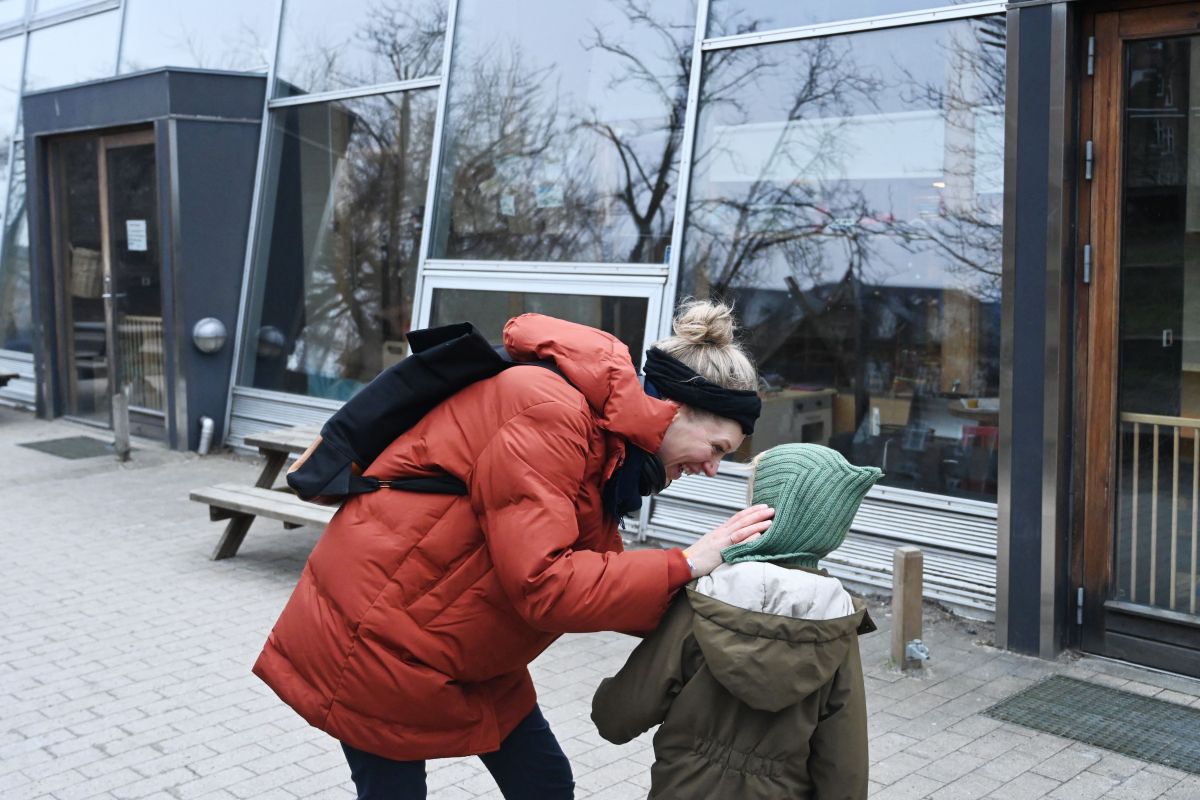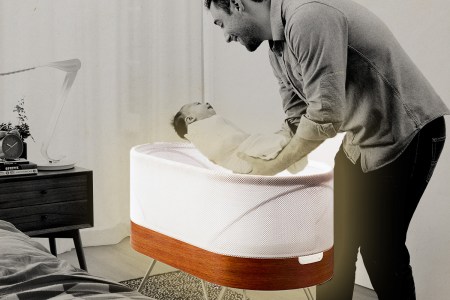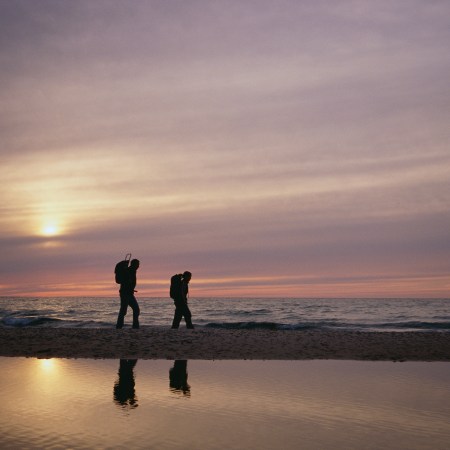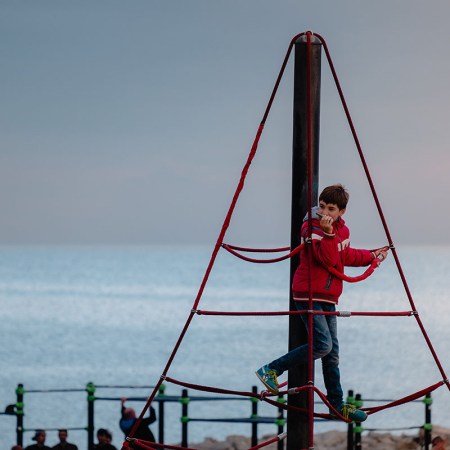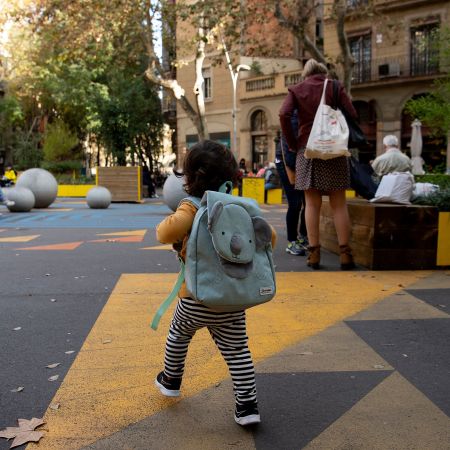If you’ve traveled to Scandinavia, you know it’s a place where common sense tends to prevail: the bike lanes are protected, the interior design is refined and the public bathrooms are plentiful. In other words, the Danes, Norwegians and Swedes have earned the benefit of the doubt. When they say something works, the rest of the world tends to listen.
But one local tradition — which has made the rounds on TikTok in recent months — has elicited a bit of an international record scratch. The countries’ mums and dads are sharing their tradition of leaving little ones (swaddled babies, to be precise), in strollers outside cafes. In the cold. Or the wet. While they chat, shop or sip coffee with friends.
It doesn’t seem particularly commonsensical, and would be literally unthinkable in America. So why do they do it? Let’s break down the puzzling rearing practice.
Does the Snoo Actually Work? After Two Kids, I’m a True Believer.
Dr. Harvey Karp’s smart bassinet may seem extravagant, but I can’t imagine how my kids (or my wife and I) would have slept without itPark Your Stroller
For starters, don’t worry: these tots aren’t left to fight the elements on their own. The Scandinavian sensibility on crappy weather can be summed up with the phrase “Det finnes ikke dårlig vær, bare dårlig klær!” (“There is no bad weather, only bad clothes!”) So they wrap their little ones in lightweight wool and down duvets. The strollers are covered, of course, but with proper ventilation, so the napping babies can breathe in the fresh air.
That’s sort of the whole point. Sleep experts have weighed in on the quirky cultural norm, confirming that babies actually can get deeper shut-eye when sleeping outside. The air quality’s better, and assuming it isn’t hypothermia-level cold, the temperature makes for a refreshing experience. Plus, the chirping birds, rustle of doors, chimes of bike bells and all sorts of other sounds offer the baby a ready-made white-noise machine.
Won’t they catch cold? Well, outside air doesn’t circulate viruses and cause infections. Staying in close, indoor quarters with other people does. Won’t they get kidnapped? No, that sort of crime is rare in Scandinavia. (Hence why the Scandinavian crime fiction genre is so robust; area authors have to be extra imaginative!) These are among the safest nations on the planet.
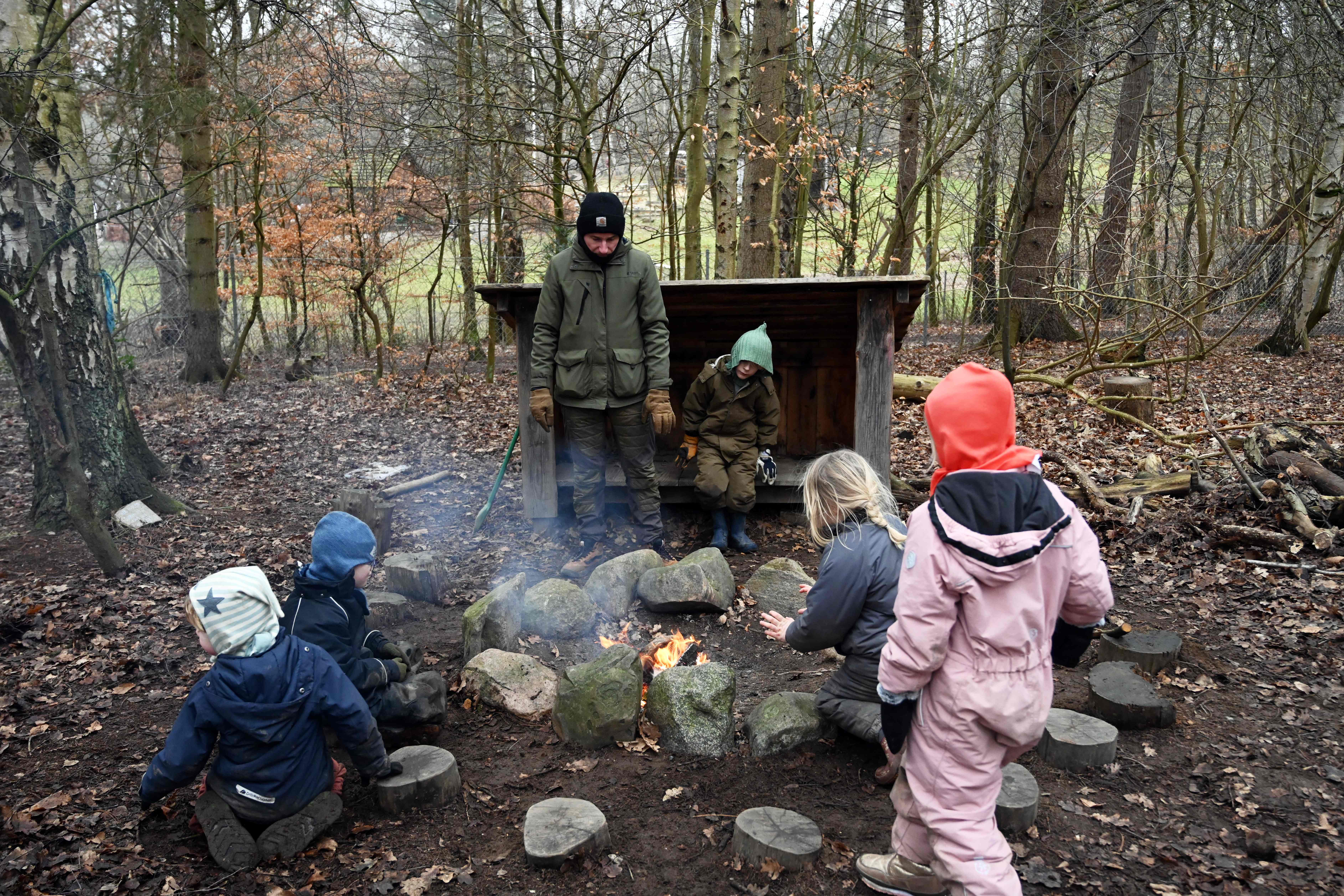
“Forest Preschools”
It would be interesting to see some actual peer-reviewed research on whether leaving babies outside leads to actual changes in the body — added immune system strength, perhaps?
At the very least, though, this practice seems to endear local little ones to the concept of outdoor time, fresh air and all the rivers, mountains and forests that the region has in droves (particularly in Norway and Sweden). It’s common for toddlers to attend so-called forest preschools, where they rumble around the woods all day, every day, no matter the weather.
Teachers watch on as kids pile up sticks (math) or whittle away at sticks (fun), with the knowledge that life and learning aren’t always like this. Before tech and technology take over — school is mandatory from age six and on — Generation Alpha should have a real chance to appreciate the world around them.
Takeaways for the U.S.
Lo and behold, the same toddlers who once slept outside as babies are also encouraged to sleep outside during their preschool days. Many redeem the offer, so tuckered out they are from climbing, collaborating and cooking around log fires.
We have some parallels in America, obviously: summer camp, scout training, “a week in the woods” field trips. But the year-round nature of the Scandinavian model is different. It appreciates getting outside in all sorts of weather, embraces the benefits of “risky play” (instead of fretting the wrath of ridiculously litigious parents) and gives young children an opportunity to express their creativity on a daily basis — not just in an expensive or controlled setting.
(In fact, free buses take “asphalt kids” from Nørrebro, Copenhagen’s most densely populated neighborhood, out to the woodsy schools.)
Also, it’s not just kids who benefit from time spent outside. Parents get chances to reclaim their own individuality. They can have a coffee catch-up without feeling like they’re on duty, or take a day to work or regroup, knowing their kid is out exploring and will be okay. It’s a level of trust — in others, in the world outside — that you don’t see too much anymore. However odd it may seem, it deserves to be celebrated.
The Charge will help you move better, think clearer and stay in the game longer. Subscribe to our wellness newsletter today.
